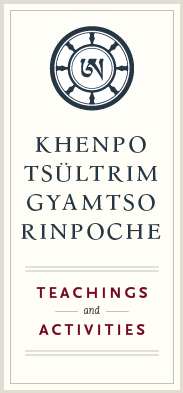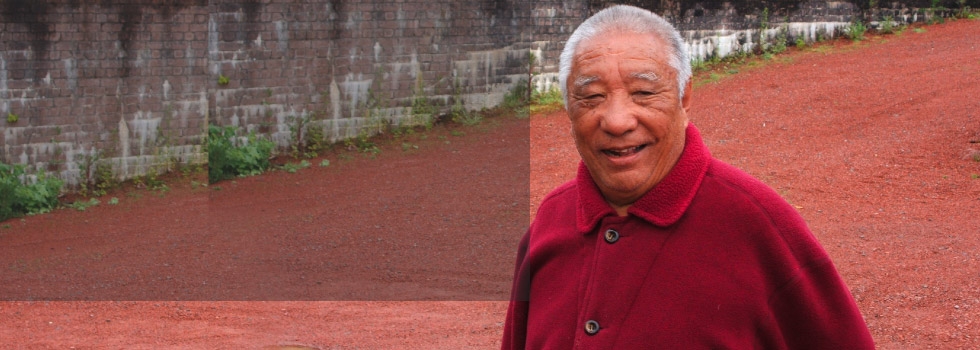You are here
The Sacred Place of Jang-Chub Dzong and the Yogi
This sacred place of practice is called Jang-chub Dzong,
A fortress of enlightenment, a retreat in seclusion.
On high soars a white snow mountain, the throne of a mighty god,
Below, faithful benefactors make their many homes.
Behind is a range of mountains, a thick curtain of white silk,
In front gather trees together in an abundant grove.
Open meadows filled with soft grass stretch as far as you can see,
The perfume of lotus flowers draws the jewels of amber bees.
On the shores of limpid pools, nourished by mountain springs,
Water-fowl stand on watch, craning their necks so they can see.
In the limbs of giant trees, the birds sing their glorious songs,
Sweet smells ride a gentle breeze, and the branches sway in dance.
These magic trees tower into the sky, yet they do not block your view,
On their tops, monkeys spring and bound, while their roots imbibe vital drink.
Spread over spacious fields of soft green, the ones on four legs graze,
While their herders vary pleasing songs, and play flute melodies.
All these servants of worldly attachment fill the Earth with their to and fro,
Their master drives them on and on, and I the yogi watch them.
Here on Kün-sal Rin-chen Drak, the precious peak where all is clear,
I remember appearances are examples of impermanence.
I see sense pleasures as a mirage, this life like a dream and an illusion,
And I cultivate compassion for all who do not know this.
I eat the food of empty space, I meditate without distraction,
I have different experiences, just about anything can happen!
E ma, the phenomena of the three realms of samsara,
While not existing, they appear, how incredibly amazing!
Under the guidance of Dechen Rangdrol, translated by Ari Goldfield, Guayrapa Asociación Cultural, Tarragona, Spain, May 3, 2003. Tibetan page 249. Translation copyright 2012, Ari Goldfield

